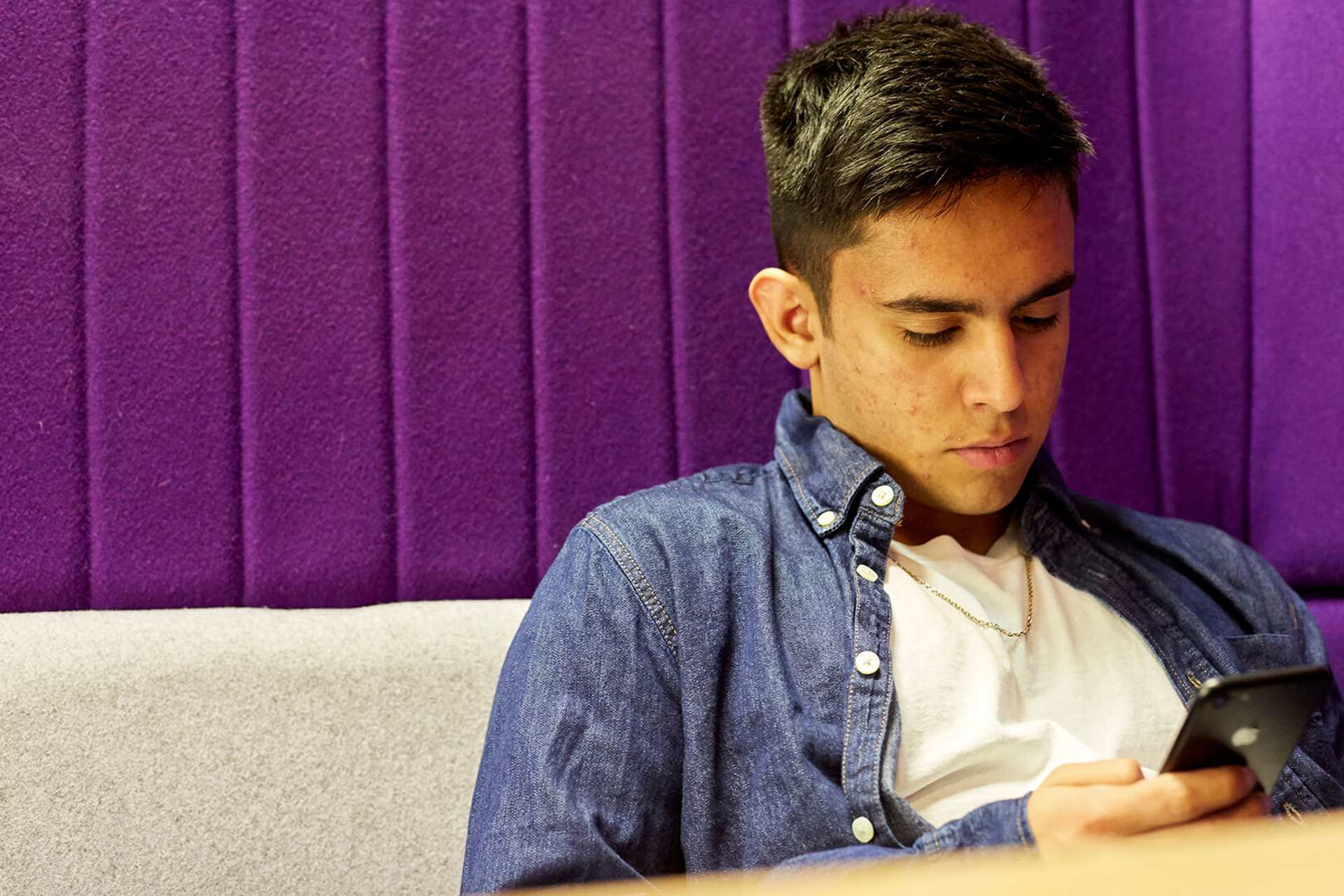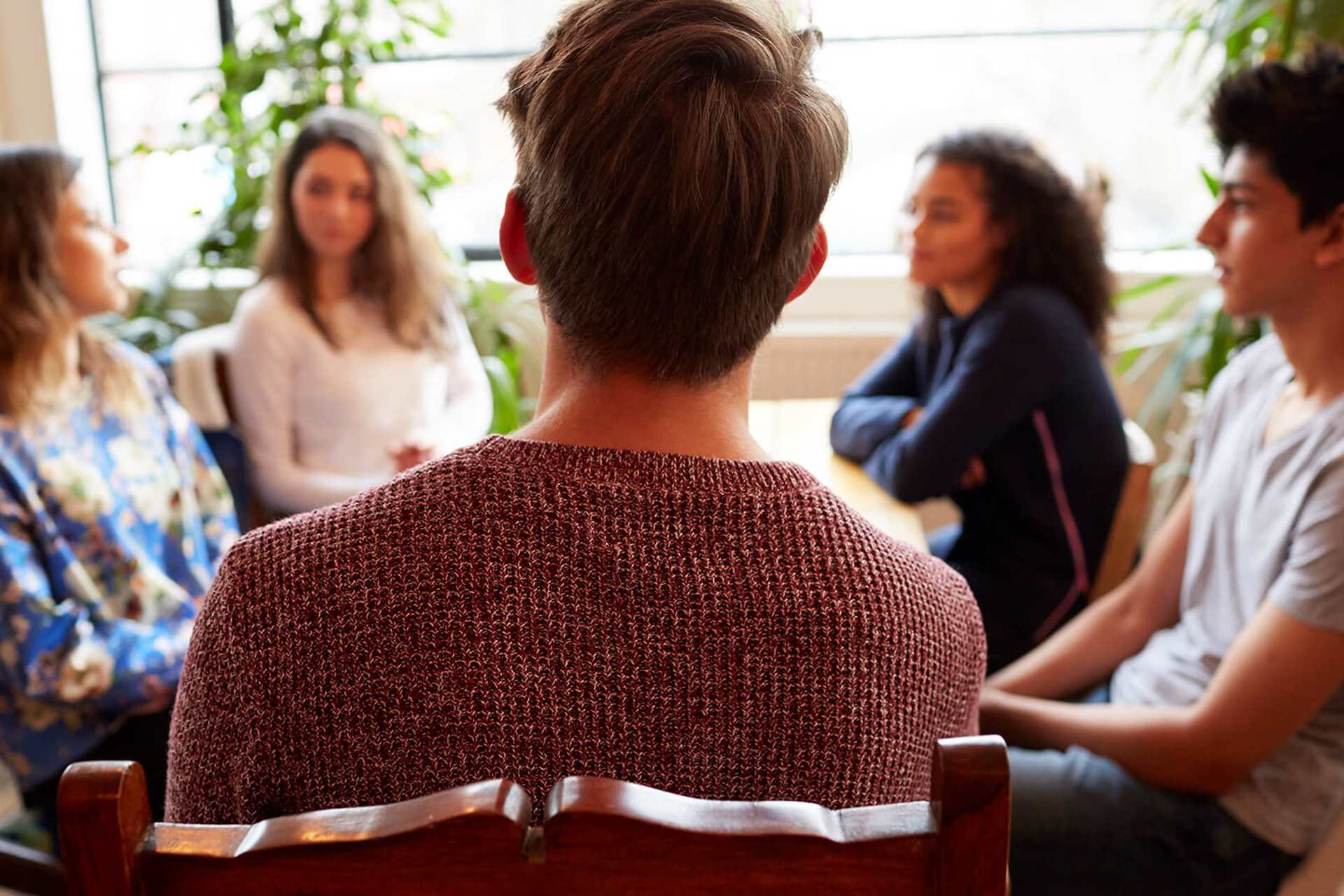Topics mentioned: OCD, anxiety, looking after yourself at uni
About: Elliot shares what it's like to experience pure obsessional OCD (also known as pure-O), manage intrusive thoughts, and what recovery means to them.
Just existing in my mind was a struggle because of the influx of intrusive thoughts I would get from the most random and minor things - and the compulsions I felt I had to do to ‘prevent’ these thoughts from becoming a reality.
What is Pure-O OCD?
We all experience upsetting thoughts that come into our minds unwanted from time to time. These are called intrusive thoughts and they are a normal part of life - something that is experienced universally.
However, for people with obsessive compulsive disorder (OCD), these thoughts cause great anxiety, causing them to develop behaviours (called “compulsions”) that they use to combat the anxiety. Often these compulsions are visible, like the common examples of frequent handwashing or checking an oven is off, but in the case of pure obsessional OCD, known as pure-O, they are invisible.
Pure-O is a bit of a misleading name, as it implies it does not involve compulsions. This is not the case.
There are a number of different ‘types’ of OCD. Contamination OCD is a common example: this involves obsessions and compulsions around sickness, illness, cleanliness etc. Pure-O is another ‘type’ of OCD that people can experience.
Pure-O is a bit of a misleading name, as it implies it does not involve compulsions. This is not the case. With pure-O, compulsions happen internally. They are thought-based, such as thinking a certain phrase or image to ‘resolve’ an intrusive thought.
The NHS gives the example of someone having intrusive thoughts about their daughter coming to harm (the obsession), and having to visualise their daughter healthy and think the phrase, ‘my daughter is alive and well,’ - this being the compulsion.
A lot of dealing with OCD is about learning to manage the stress of obsessions without fulfilling the associated compulsion.
My experience of pure-O
My OCD began with mild obsessions and compulsions that developed when I was around 15, and slowly worsened throughout my GCSEs and A-Levels. It wasn’t until university that I realised what I was dealing with might be OCD. Like many people, I found that the stress of moving to university, living alone and starting my degree brought up every little mental health thing I’d been pushing to one side.
The increased stress I was dealing with day-to-day sent my obsessions and compulsions from a relatively minor irritation to a constant and draining battle. Walking anywhere was challenging because I was obsessed with maintaining a sense of symmetry in my body so every step had to feel ‘right’.
Seeing friends became difficult because every social event was followed by hours of rumination. Just existing in my mind was a struggle because of the influx of intrusive thoughts I would get from the most random and minor things - and the compulsions I felt I had to do to ‘prevent’ these thoughts from becoming a reality.
I’m in a better place now, but pure-O is something I continue to battle with daily. Because pure-O, by definition, happens solely internally, no one around me can tell immediately if I’m having a difficult time with it. It makes it a very solitary, isolating experience. There’s all this stress and panic and fear happening in my head and no one around me has any idea.
Recovery, for me, is about reaching a point where my OCD is manageable, not where it’s gone.
A lot of dealing with OCD is about learning to manage the stress of obsessions without fulfilling the associated compulsion. The focus is on learning to experience the anxiety of an intrusive thought without needing to seek relief through a compulsion.
When it comes to pure-O, learning this is a purely internal process. It can feel much harder to resist pure-O compulsions because they’re so easy to do – it’s often just a thought – and there’s no one to hold you accountable except yourself.
What recovery means to me
There’s a really strong narrative within OCD circles - and generally in the world - that recovering from OCD means that your intrusive thoughts don’t bother you anymore. That you never ever do compulsions, or even that your intrusive thoughts have reduced to almost nothing.
For some people, recovery does mean this. But for most, recovery is about learning to manage your disorder for what it is. OCD is probably never going to leave you. Sometimes it’ll be easier, and sometimes it’ll be harder; but it is learning how to manage both of these times - and everything in between - that is key.
It’s not about squashing the thoughts, or giving them extra attention. It’s about treating them as what they are: thoughts.
Recovery, for me, is about reaching a point where my OCD is manageable, not where it’s gone. It’s about having a thought, and distracting myself from it. By studying, putting on some music, or spending time with other human beings. It’s not about squashing the thoughts, or giving them extra attention. It’s about treating them as what they are: thoughts.
OCD is hard, and it’s okay to struggle. It’s draining because it’s so constant, but it is possible to live a life you enjoy while dealing with OCD.
More information and advice
We have tips and advice to help you find the support you need. Take a look at our guides.
Where to get help
However you're feeling, there are people who can help you if you are struggling. Here are some services that can support you.
-
OCD Action
Offers support and information to anybody affected by obsessive compulsive disorder (OCD).
- Opening times:
- 9:30am - 8pm, Monday - Friday






